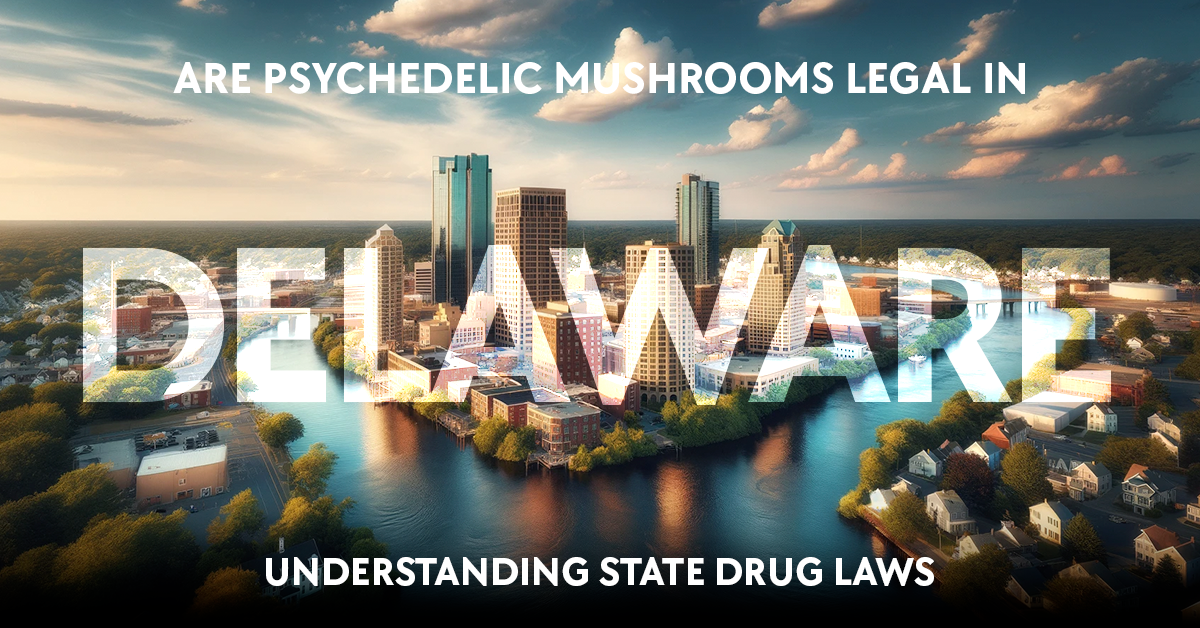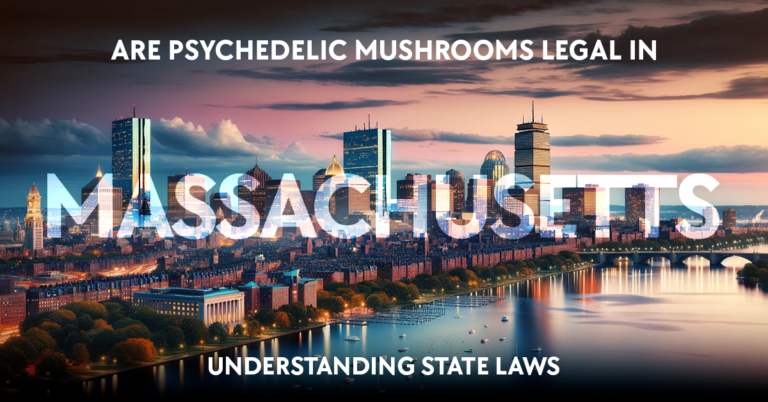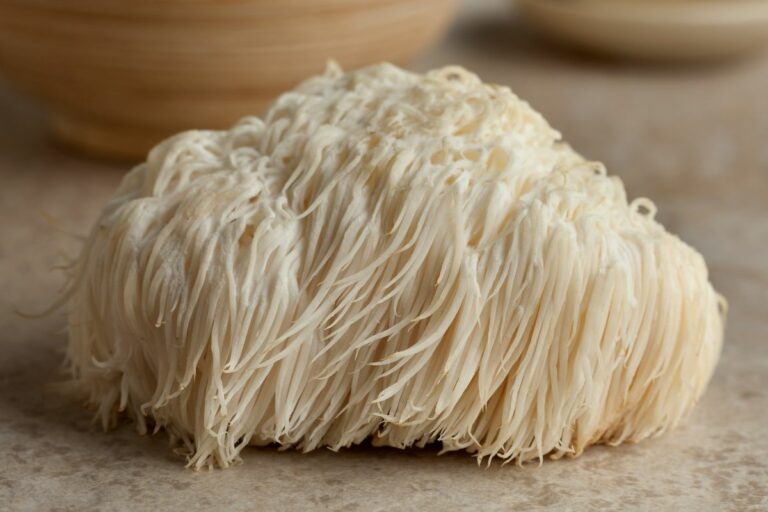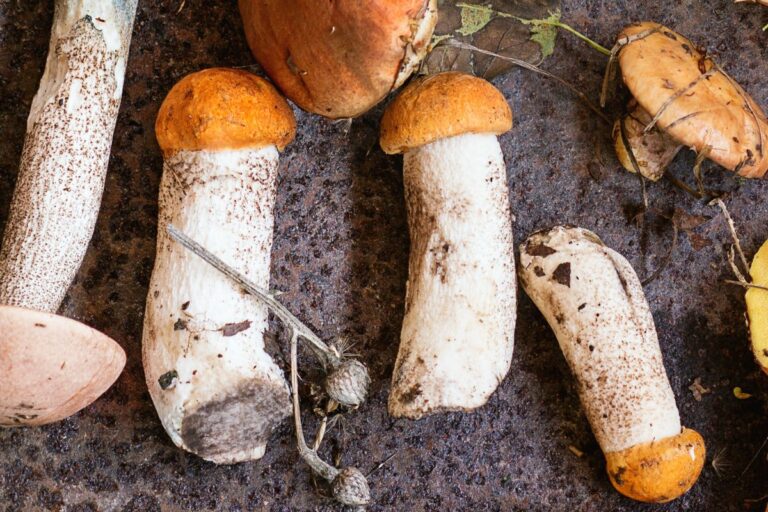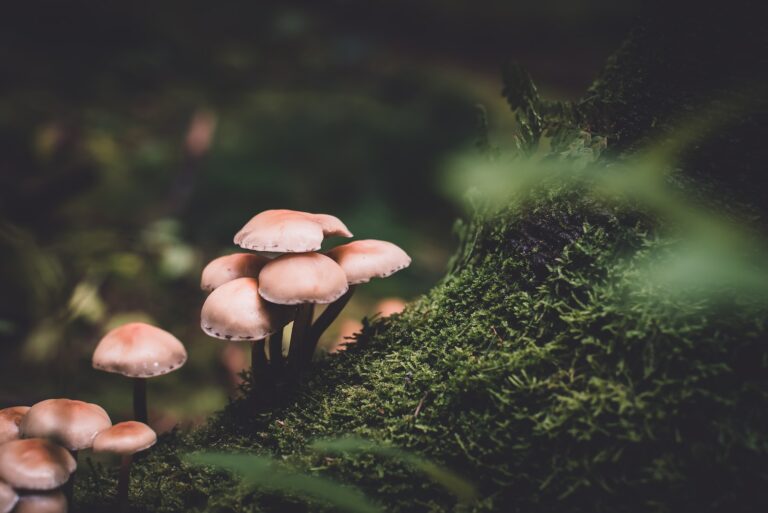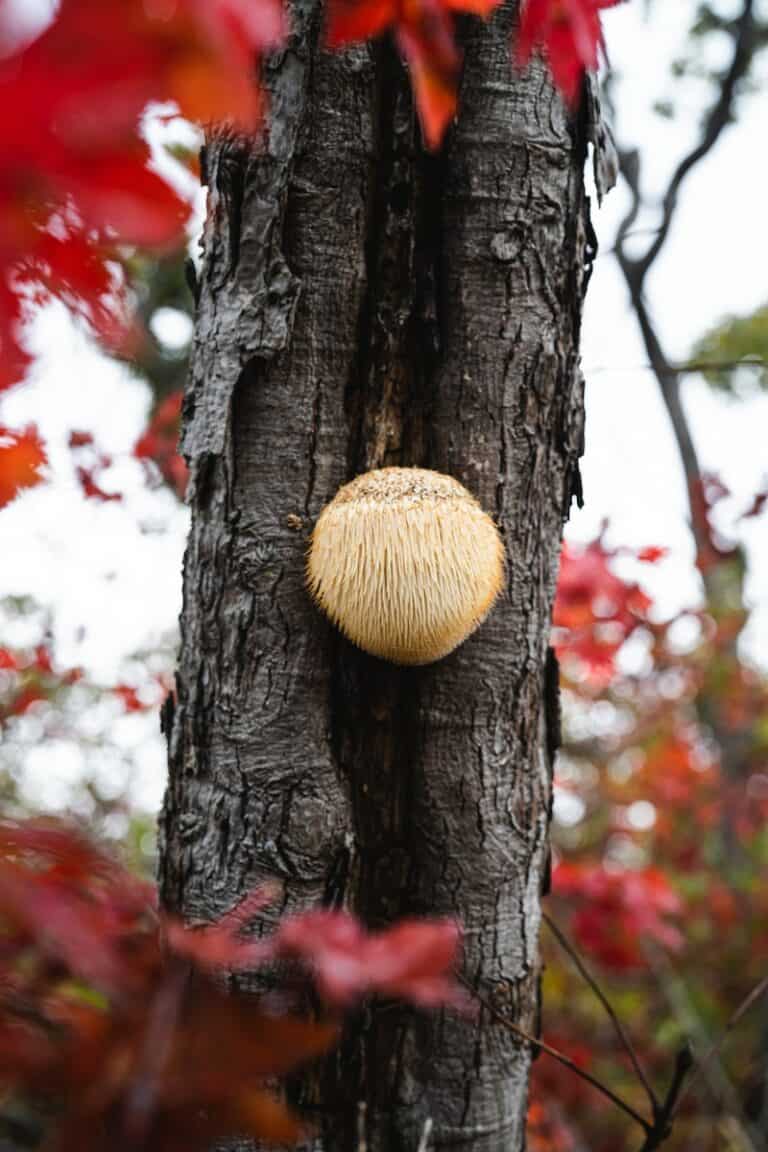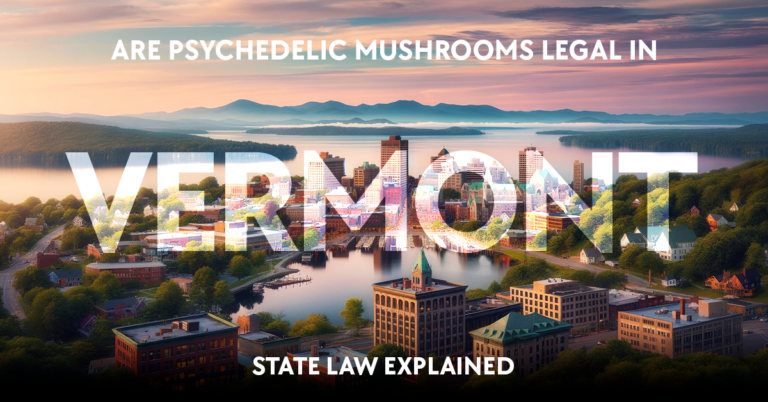In exploring the legality of psychedelic mushrooms, particularly psilocybin mushrooms, you’ll find that the legal landscape varies significantly across different states in the United States. In Delaware, the situation is clear: psychedelic mushrooms are classified as illegal substances. This classification aligns with federal law, where psilocybin, the active compound, is listed as a Schedule I drug under the Controlled Substances Act. This categorization indicates a high potential for abuse and no accepted medical use.

Delaware took specific measures to restrict the use of certain psychedelics, including mushrooms that contain psilocybin. The state’s approach reflects a cautious stance toward substances that have historically been associated with recreational use and potential psychological effects. Salvia, another psychedelic, shares a similar legal status in Delaware, having been banned after incidents reported its use.
Though research into the therapeutic benefits of psilocybin mushrooms is ongoing, with studies indicating potential for treating mental health conditions, these findings have yet to influence the legal status of these substances in Delaware. The current legal framework emphasizes the importance of adhering to state laws, and as such, possession or use of psychedelic mushrooms carries legal consequences in Delaware.
Legality of Psychedelic Mushrooms in Delaware
Table of Contents

In Delaware, the use and possession of psychedelics, including psilocybin mushrooms, are governed by strict state laws and are subject to significant penalties.
Delaware State Laws
You should be aware that in Delaware, psychedelic mushrooms are categorized as Schedule I controlled substances. This means that psilocybin, the active chemical in these mushrooms, is considered to have a high potential for abuse and no recognized medical value, rendering it illegal.
Penalties for Possession in Delaware
If you are found in possession of psychedelic mushrooms in Delaware, you face severe legal consequences. The penalties range from fines to imprisonment, depending on the amount you possess. For example, simple possession can lead to up to six months in jail, while possession with the intent to distribute carries much harsher punishments.
Efforts Towards Legalization
While some states have made moves toward decriminalization or legalization of psychedelic substances, there have been no significant efforts to change the legal status of psychedelic mushrooms in Delaware.
Federal vs. Delaware Law on Psychedelics
It’s important to remember that your handling of psychedelics is not only subject to state law but also federal law. Federal law also classifies psilocybin as a Schedule I substance, which means that even if Delaware were to change its laws, federal law enforcement could still prosecute the possession or use of psychedelic mushrooms.
Enforcement in Delaware
Enforcement of these laws in Delaware is active and consistent with the state’s classification of the substance. If you find yourself involved with psychedelic mushrooms, you could be at significant risk of legal trouble.
Comparative Legality in Other States

As you explore the current landscape of psychedelic legality, note that while some states have decriminalized psychedelics, others allow them for medical use, and a few are moving towards more inclusive legalization through active legislation.
States with Decriminalized Psychedelics
- California: Cities like Oakland and Santa Cruz have decriminalized the use of psilocybin mushrooms, paving the way for a more lenient approach toward psychedelics statewide.
- Colorado: Denver became the first city to decriminalize psilocybin mushrooms in May 2019, although statewide policies remain unchanged.
- Oregon: Not only has Oregon decriminalized psilocybin mushrooms, but it has also passed measures to create a licensed program for their medical use.
- Washington, D.C.: The district has decriminalized non-commercial planting, cultivating, purchasing, transporting, distributing, engaging in practices with, and/or possessing entheogenic plants and fungi.
Psychedelics in Medical Use by State
- New Mexico: Allows the use of psilocybin in a clinical setting for research purposes.
- Oregon: Voters passed a measure in November 2020 to permit the medical use of psilocybin mushrooms under a licensed administration program.
States with Active Legislation on Psychedelics
- Massachusetts: A bill filed in January 2021 aims to decriminalize entheogenic plants, providing access for therapeutic and medicinal use.
- Michigan: Ann Arbor has decriminalized entheogenic plants, and there are proposals that might extend these policies statewide.
- New Mexico: Continues to explore legal possibilities for decriminalizing the use of psychedelics for medical and therapeutic purposes.
- Vermont: There is growing advocacy for policy reform around the medical use of psychedelics, hinting at potential future legislation.
Keep in mind that laws and regulations can change, and for the most current information, you should check the latest legislative updates in each state.
Historical and Cultural Context of Psychedelics
https://www.youtube.com/watch?v=RuNs9k-fI5Y&embed=true
Exploring the roots of psychedelics, you’ll find a rich tapestry of traditional use and cultural significance that later became enmeshed in the broader context of political legislation and control.
Origins of Psychedelic Substance Use
Psychedelic substances, broadly speaking, have a longstanding connection with human culture and spirituality. Psilocybin mushrooms, for instance, were central to religious ceremonies in ancient Mesoamerica. Artifacts and codices from these civilizations, such as stone carvings and illustrations, suggest the use of these mushrooms for transcendental experiences. Given the historical narratives, it’s clear that psychedelics like LSD and DMT also have origins that reach far into human history, although they were synthesized much later.
Psychedelics in the War on Drugs
By the mid-20th century, substances like LSD and psilocybin had escaped the confines of laboratory and cultural use and entered the mainstream. Their association with the counterculture movements of the 1960s attracted the attention of regulatory authorities. This led to psychedelics becoming entangled within the War on Drugs, a government-led initiative aimed at eradicating illegal drug use. The enactment of the Controlled Substances Act in 1970 placed many psychedelics, including psilocybin mushrooms, LSD, and DMT, into the most restrictive class, Schedule I. This signaled an era of prohibition for these substances, likened by some to the earlier prohibition of marijuana, which was similarly classified as a controlled substance despite its own complex cultural history.
Medical Research on Psychedelics

In exploring the potential therapeutic uses of psilocybin, a compound found in certain mushrooms, you will encounter an intricate relationship between ongoing research and legal regulations. These factors heavily influence what medical research can be conducted and the conditions under which it is possible.
Psilocybin and Mental Health
Your understanding of psilocybin’s effects on mental health begins with recognizing its potential in treating conditions like depression, PTSD, and anxiety. Scientists engaged in medical research have observed psilocybin’s ability to alter mood and perception, leading to investigations on how it can be adapted for therapy. For instance, studies have reported that psilocybin, in conjunction with psychotherapy, may reduce symptoms of depression in patients for whom traditional treatments have failed. This promising area of research, however, navigates the complex landscape of a substance that is currently classified as a Schedule I Controlled Substance with no accepted medical use by federal law.
Legal Status of Research on Psychedelics
The legal status of research on psychedelics such as psilocybin is closely tied to its classification by the FDA and the Drug Enforcement Administration (DEA). Although psilocybin mushrooms are listed under Schedule I, recent shifts in regulatory approaches have seen the FDA designate psilocybin therapy as a “breakthrough therapy” for depression to accelerate clinical trials. This acknowledges that rigorous, well-designed research is essential to elucidate the therapeutic potential of psilocybin. Despite this, conducting research remains challenging due to legal hurdles, limiting the opportunities to explore psilocybin’s benefits fully.
Considerations for Use and Abuse
In Delaware, the legal status of psychedelic mushrooms is a crucial consideration for your understanding, especially regarding their medical use and potential for abuse.
Potential Health Benefits
Psychedelic mushrooms, primarily containing psilocybin as the active compound, have shown promise for therapeutic use in clinical research. Medicinal benefits include the potential to alleviate symptoms of existential anxiety, depression, and PTSD, with ongoing studies suggesting their efficacy. However, despite the positive outcomes indicated by some studies, usage remains highly controlled and is not legalized for casual consumption in Delaware.
- Therapeutic Use: Controlled clinical trials exploring low to moderate dosing for mental health conditions.
- Healing Centers: Research in structured and supervised environments to evaluate the medicinal benefits.
Potential Risks and Addiction
While research highlights potential therapeutic applications, there is also a high potential for abuse and legal implications surrounding the unsupervised use of psychedelic mushrooms. Abuse could lead to psychological distress and unsafe behaviors.
- Potential for Abuse: Risk of psychological dependency due to frequent unsupervised consumption.
- Addiction: Although physically addictive qualities of psychedelic mushrooms are low, they can still lead to a pattern of abuse in absence of regulatory controls.
Remember, in Delaware, all use outside regulated medical studies is considered illegal, and despite potential health benefits, the risks of unsupervised use are significant and legally fraught.
Commercial and Recreational Aspects
In Delaware, you’ll find that the laws regulating psychedelic mushrooms encompass both their commercial aspects, including sale and cultivation, and their use on a personal and recreational level.
Legality of Sale and Cultivation
In the state of Delaware, the sale and cultivation of psychedelic mushrooms are illegal. Under state law, psilocybin—the active compound in these mushrooms—is categorized as a Schedule I controlled substance. This means that selling, growing, or possessing mushrooms with the intent to grow them can result in legal penalties.
- Sale: Prohibited under state law.
- Cultivation/Growing: Criminal activity with potential for legal consequences.
Personal and Recreational Use
Regarding personal and recreational use, it’s important to understand that in Delaware, psilocybin remains illegal. Possession of psychedelic mushrooms for personal use is a violation of state law and can lead to charges similar to those associated with other controlled substances.
- Personal Use: Not permitted.
- Recreational Use: Considered unlawful.
While spores themselves may not contain psilocybin and are technically not illegal to possess in some jurisdictions, the cultivation of mushrooms from these spores for psilocybin production is illegal in Delaware. Be aware that any activities involving psychedelic mushrooms carry significant legal risks.
Regulatory Landscape and Future Outlook
In Delaware, the legal reality and prospective shifts concerning psychedelic mushrooms hinge on advocacy efforts, regulatory amendments, and the potential societal impacts. You will see how public opinion, legislation, and future trends might shape the future of psychedelics in your state.
Advocacy and Public Opinion
Advocates for psychedelic policy reform have been instrumental in changing public opinion across the United States. In Delaware, your awareness of such efforts is pivotal as it reflects a growing trend that could influence legislation. Society‘s view on psychedelic mushrooms is becoming more open, with advocacy groups actively working to educate the public about potential therapeutic benefits.
Changes in Regulation
Recent legislative reforms in certain U.S. states have set precedents that could affect how lawmakers in Delaware approach psychedelic mushrooms. While currently, these substances remain illegal under state law, proposed regulations could change their legal status. You should note that as of now, no legal framework exists in Delaware for the decriminalization or medical use of psychedelic mushrooms, but upcoming votes or bills could initiate change.
Impact on Society
The modification of laws regarding psychedelic mushrooms would likely have a significant impact on society. With changes in regulation, you could expect discussions regarding the health benefits, therapeutic uses, and risks associated with psychedelics. The future trends also suggest a shift towards considering these substances for mental health treatment under controlled settings.
Global Perspectives
In navigating the complex landscape of international psychedelic laws, you’ll find significant variations. While some countries have decriminalized or even legalized the use of psychedelic mushrooms, others maintain stringent prohibitions. This reflects a broader discourse on global drug policy and the categorization of these substances, often as Schedule I drugs—those deemed to have a high potential for abuse and no recognized medical use.
Psychedelic Laws Around the World
Psychedelic mushrooms are subject to a wide range of regulations globally. In the Netherlands, for example, “magic truffles,” which contain the same active ingredients as psychedelic mushrooms, are legally sold. Conversely, in the United States, psychedelic mushrooms are classified as Schedule I drugs under the Controlled Substances Act, meaning their possession, sale, or cultivation can result in legal action. However, there has been a movement in certain cities and states, such as Oregon and Denver, to decriminalize or reduce penalties associated with their use.
Your understanding of global legality must also consider the progressive stance of countries like Portugal, where personal drug use has been decriminalized across the board, offering a contrasting approach to the otherwise stringent international stance on psychedelics.
International Treaties and Drug Policy
The global stance on drugs, including psychedelics, has been significantly shaped by international treaties. The most notable of these is the 1971 Convention on Psychotropic Substances, where psychedelic mushrooms are not explicitly mentioned, but their psychoactive components, psilocybin and psilocin, are listed in Schedule I.
The influence of such treaties on your local laws is significant, as they bind member countries to a set of common rules aimed at controlling and limiting the spread of these substances. However, interpretations of these treaties can vary, leading to a diverse patchwork of national legislations.
When you consider these aspects, it becomes clear that the global perspective on psychedelic mushrooms is not uniform and continues to evolve as new research on their potential benefits emerges and public attitudes shift.
Definitions and Terminology
In the context of psychedelic mushroom legality in Delaware, it’s important to understand the specific classifications and terminology used. These distinctions are critical for differentiating legal substances from those that are regulated or prohibited.
Classification of Psychedelics
Psychedelics are a subset of hallucinogenic drugs which cause profound changes in perception, mood, and cognitive processes. Psychedelics are often divided into categories based on their chemical structures and effects. Examples include:
- Lysergic acid diethylamide (LSD)
- Psilocybin (found in psychedelic mushrooms)
- Mescaline (found in peyote and other cacti)
- Dimethyltryptamine (DMT) (found in ayahuasca)
In Delaware, psychedelics are generally classified as Schedule I substances. This means that they are seen as drugs with a high potential for abuse, no currently accepted medical use in treatment in the United States, or a lack of accepted safety for use under medical supervision.
Active substances in psychedelic mushrooms are primarily psilocybin and psilocin, which are the chemicals responsible for their psychoactive effects.
Key Terms in Psychedelic Legality
When discussing the legality of psychedelic drugs, you’ll encounter several key terms:
- Decriminalization: The process of reducing the legal penalties associated with a drug, though the drug is not legal.
- Legalization: The process of making the use and possession of a drug legal.
- Therapeutic use: When a drug is used in guided medical treatments; this may or may not be legal depending on the drug and jurisdiction.
As of now, psychedelic mushrooms contain Schedule I substances and remain illegal in Delaware for recreational use. However, some substances like ibogaine, which is a naturally occurring psychoactive substance found in plants, are being researched for therapeutic uses. Despite these ongoing studies, ibogaine remains a Schedule I substance and is illegal in Delaware.
Emerging Trends and Developments
As you navigate the evolving landscape of psychedelic substances, it’s essential to be aware of the latest innovations in research and shifts in legislation. The growing body of studies underscores the potential of these substances, while policy changes reflect a shifting perception at the legal level.
Innovations in Psychedelic Research
Recent years have seen a resurgence in psychedelic research, with compounds from psilocybin mushrooms leading the charge toward new therapeutic possibilities. Groundbreaking studies point to their effectiveness in treating a range of psychiatric disorders, notably depression and PTSD. For instance, clinical trials have labeled psilocybin-assisted therapy as a breakthrough in treatment-resistant depression settings. Such trends in research are fueling a renaissance in how these naturally occurring psychedelics are viewed by the scientific community and the public at large.
Legislation and Policy Changes
In parallel, there have been significant legal changes and policy shifts regarding the status of psychedelic mushrooms. While still illegal at the federal level, certain states and cities are beginning to alter their stances. Advocacy and legislative efforts have resulted in decriminalization measures in select jurisdictions, suggesting a trend toward loosened restrictions for psychedelics. Specifically, legal discussions and initiatives are increasingly considering the medical and personal use of psilocybin mushrooms, signaling a significant shift in drug policy.
Frequently Asked Questions
In Delaware, the laws surrounding psychedelic mushrooms are clear and regulatory in nature. Knowing the legal stance can help inform your decisions regarding psilocybin mushrooms.
What is the current legal status of psilocybin mushrooms in Delaware?
Psilocybin mushrooms are classified as a Schedule I controlled substance in Delaware, making their possession, sale, and cultivation illegal under state law.
Can individuals possess or grow psychedelic mushrooms for personal use without facing legal consequences in Delaware?
No, you cannot possess or grow psychedelic mushrooms for personal use in Delaware without facing legal consequences due to their Schedule I classification.
Are there any medical or therapeutic exemptions for the use of psychedelic mushrooms in Delaware?
As of my knowledge cutoff date, Delaware does not provide any medical or therapeutic exemptions for the use of psilocybin mushrooms.
Is the sale or distribution of psilocybin mushrooms permitted in Delaware?
The sale or distribution of psilocybin mushrooms is prohibited in Delaware and is considered a criminal act due to their status as a controlled substance.
Have there been recent legislative changes impacting the legality of psychedelic mushrooms in Delaware?
There have been no recent legislative changes in Delaware that affect the legality of psychedelic mushrooms up to the current knowledge cutoff date.
Does Delaware have any active legislation or movement towards decriminalizing psychedelic mushrooms?
There is no active legislation or widely supported movement aimed at the decriminalization of psychedelic mushrooms in Delaware at this time.

